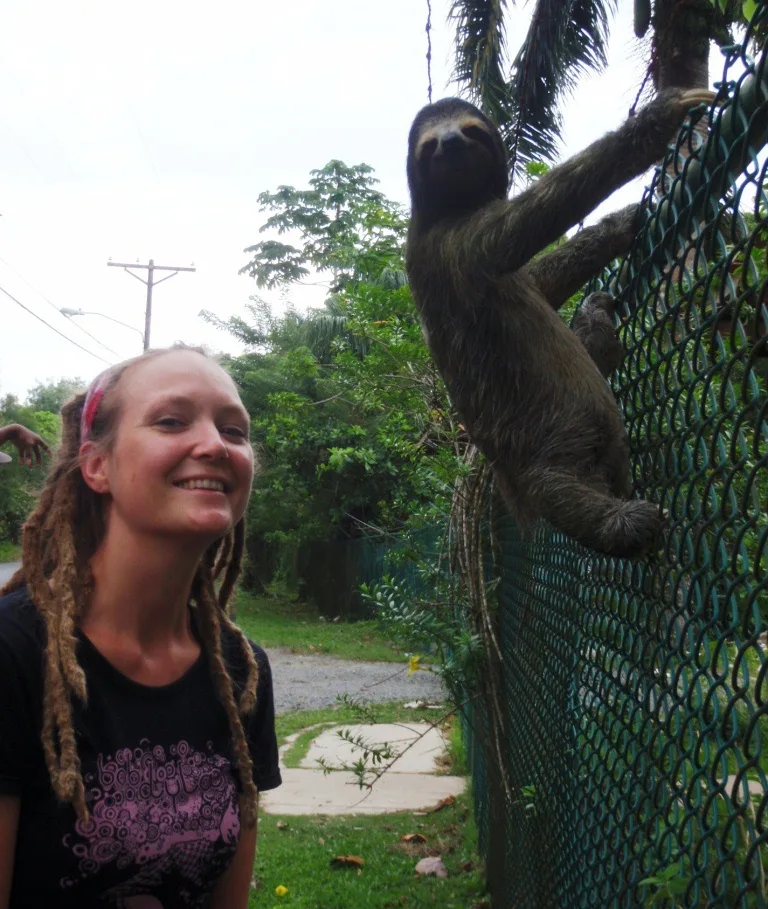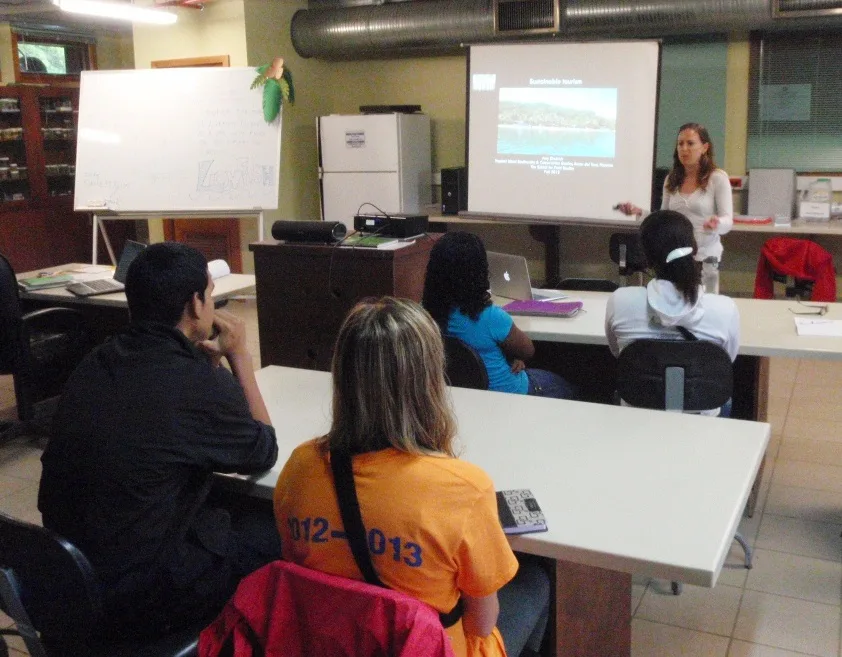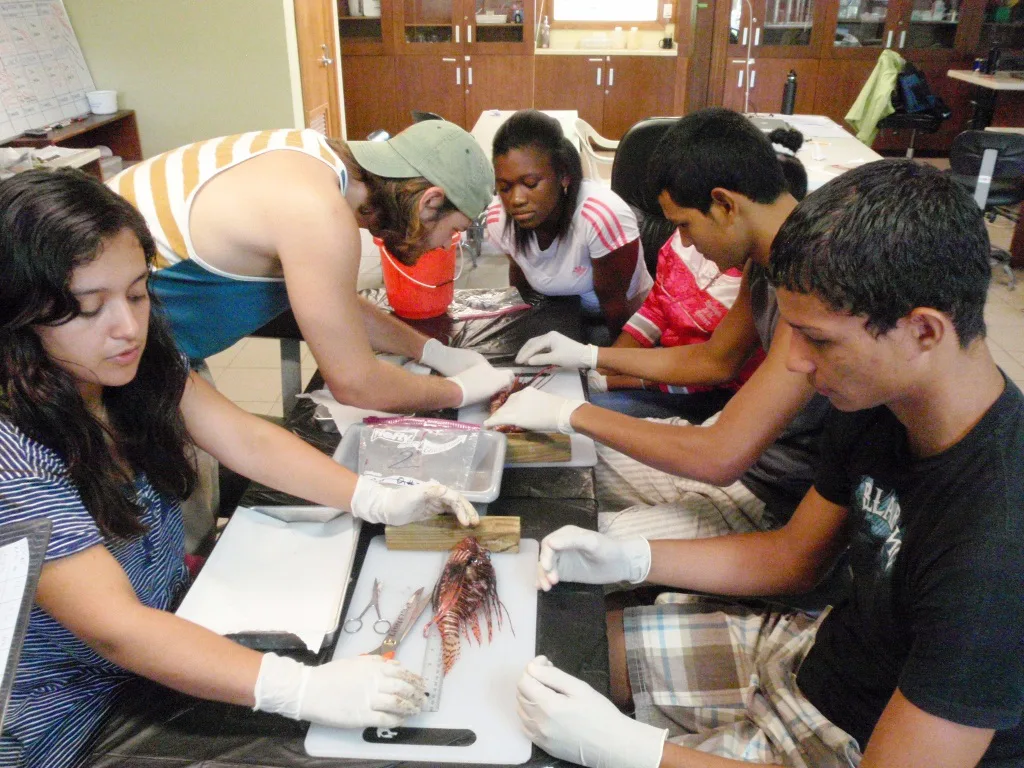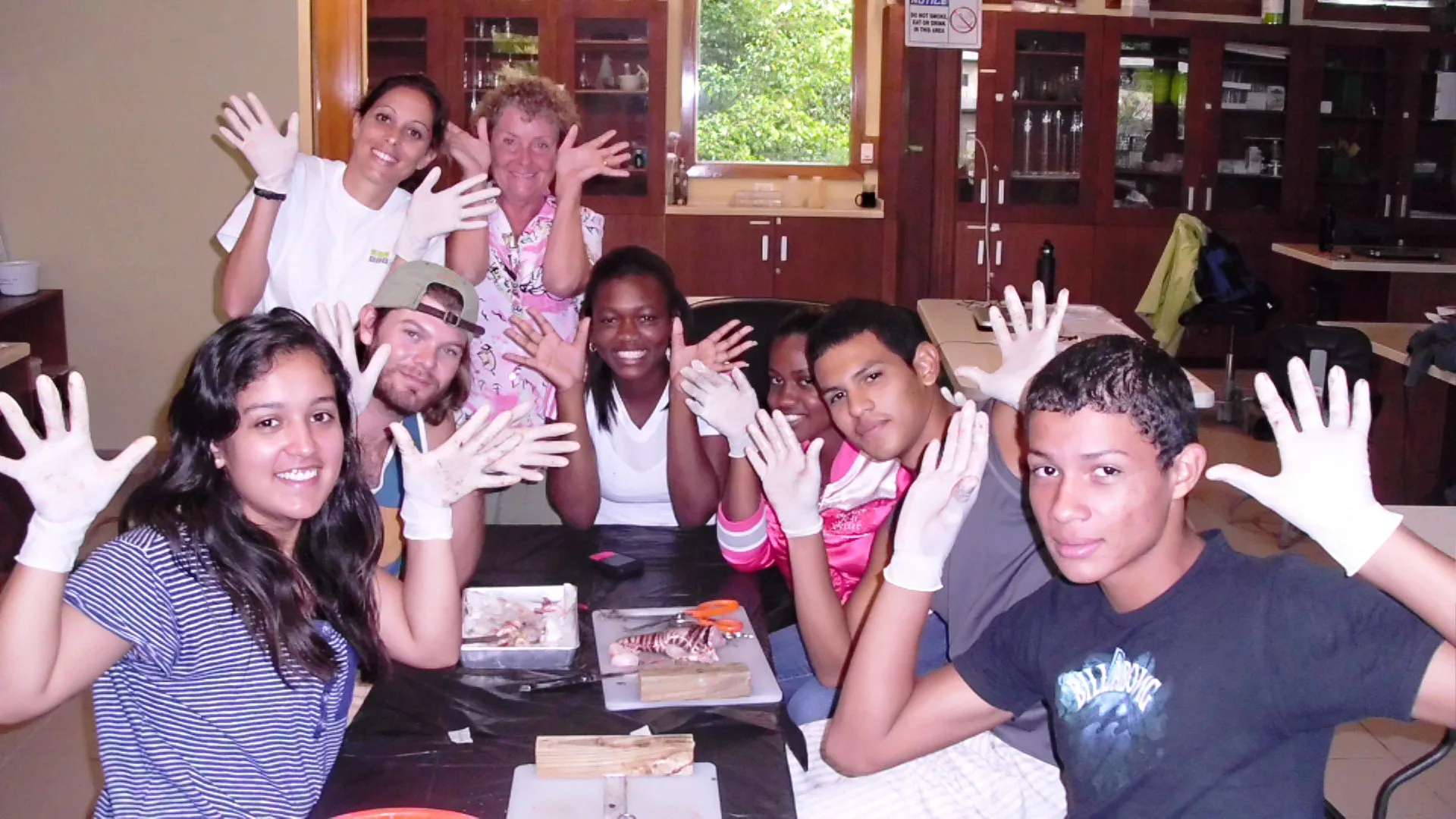“Hands for the Sea”
Nearly 12 years ago I first came to Bocas del Toro in my last year of university to take a course in tropical rain forest ecology with the Institute for Tropical Ecology and Conservation. Little did I realize how connected I would soon become to Panama and its colorful biodiversity and cultural landscape. My interest in community-based conservation and capacity building developed as a Peace Corps volunteer on the Pacific Coast of Panama from 2001-03 upon graduation; since then I’ve been returning to visit my “families” every couple of years.

With each visit to Panama I observe more and more changes, and this was especially evident when landing in Bocas in August to work with SFS’s newest program. Change is simply inevitable, both culturally and ecologically. Humans often view ourselves as separate from our systems, but in places like Bocas del Toro it is hard to shun the fact that we are connected to and dependent upon the surrounding natural resources. The archipelago thus provides a fascinating forum for SFS students to directly experience this dynamic.

This semester we’ve established contacts with local groups making positive contributions in the community of Bocas del Toro. Recently we worked with the Smithsonian’s Education and Outreach coordinator and a small, non-profit organization called “Manos Para El Mar”, which focuses on marine and environmental education. SFS staff and students contributed to a monthlong high school education program based at the Smithsonian Tropical Research Institute. The experience provided SFS students an opportunity to transfer their newly gained program knowledge as well as time to interact with local high school students.

SFS faculty-driven presentations included topics ranging from shark ecology, the importance of biodiversity, invasive lionfish, and the impacts of tourism. Students were able to interact in a variety of ways: teaching the local high school students how to dissect and take biometrics of lionfish, showing students how to upload wildlife photos and to identify species using inaturalist.org, and generating an interactive discussion about their perceptions of changes from tourism in Bocas.


In joining “Manos Para El Mar” we did reach out our proverbial hands for the benefit of coastal life of these magical islands, but ultimately we were reaching out to the community and to the longevity of humans’ livelihood within the islands. We were reaching out to our hosts, to ourselves and ultimately to the global community. Hopefully this helped spark a deeper urge within each of us to continue reaching out to make connections with each other and to grow as individuals beyond the SFS program. In some cases, we may even find that things come full-circle in our life!
Related Posts

Camila Rojas: Alumni Spotlight⭐

